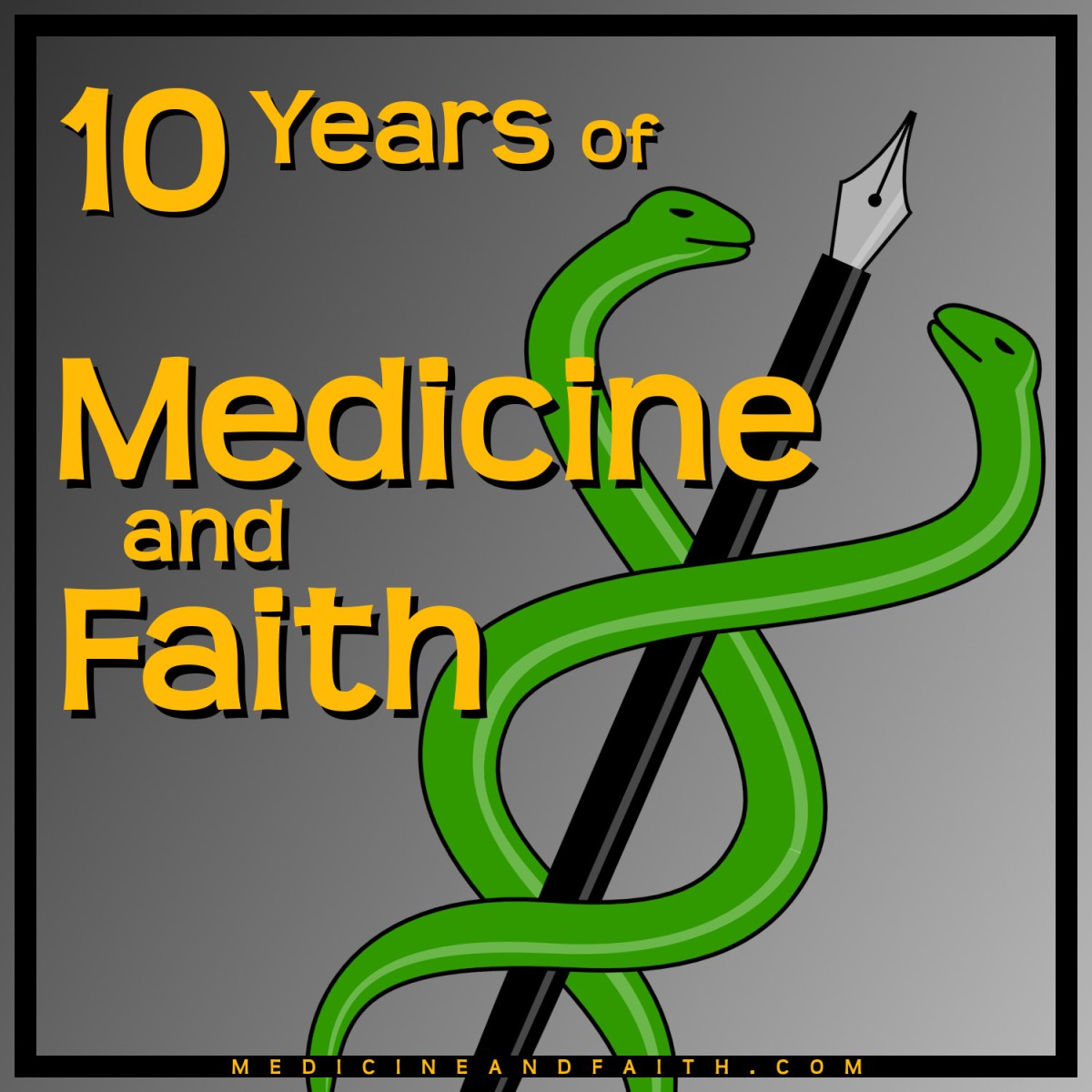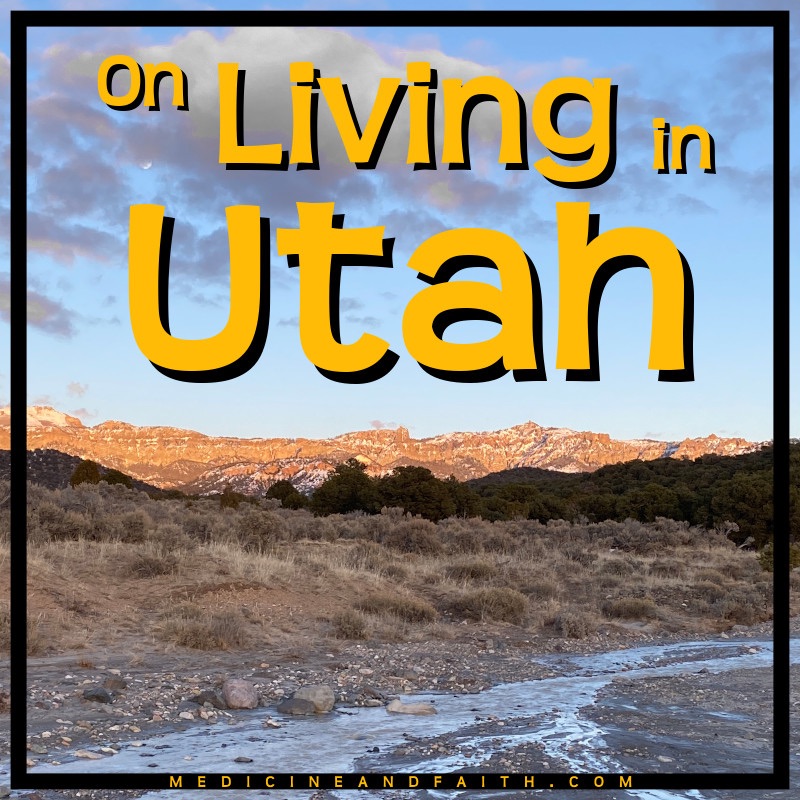This article is the second of a six-part series, written in the hope that it will be useful to those who are considering or preparing for a career in medicine, and at least entertaining and uplifting for the rest of you:
- First Decisions: Deciding to become a doctor
- Apply Yourself: Undergraduate studies
- The Academic Eating Contest: Medical school preclinical years
- Academic Vertigo and the Identity Crisis: Clinical rotations and specialty choice
- Keep Your Nose Above Water: Surviving residency
- Living the Dream: The transition from training to practice
Getting accepted to medical school was a bit more complicated than enrolling at the university for undergraduate studies, where apparently the only requirement was that I be a state resident with a pulse. The medical school application required prerequisite courses, standardized testing, multiple letters of recommendation, application fees, and traveling for interviews.
The first obstacle was the undergraduate course work, which actually I didn’t think was so hard. Dealing with all of the obnoxious pre-med students was the real challenge, as they filled up the seats in the enormously large amphitheater classes and only seemed to care about what topics were going to be on the exam. These students were intimidating, competitive, and laser-focused on the goal of getting into medical school. I also detected a certain disdain for them among my professors and among the other students. My reaction was to become a “closet pre-med,” mostly keeping my career aspirations to myself.

Rather than focusing on the examinations, I focused on the course material with the intent to actually learn it. The hard sciences are genuinely interesting, so this wasn’t very difficult to do. I learned fascinating things about ecology, comparative vertebrate morphology, genetics, biochemistry, and mathematics that I still think about today even though they don’t apply directly to my work. One of my favorite professors was a mathematical biologist, and he taught calculus using life science models instead of the traditional physics models. His lectures were fascinating, intuitive, memorable, and laugh-out-loud funny (believe it or not).
Focusing so hard on my course work and keeping quiet about my career aspirations for so long naturally led me to question my own goals and motives. I was also limited by my social phobia, which I did not understand at the time. If it hadn’t been for my wife I think I probably would have talked myself out of applying to medical school, settling on some other career in the life sciences that I think (in retrospect) would not have been as good of a fit for me. But she expected me to do it, so I felt obligated to march forward with the plan.
I also had encouragement from Gordon B. Hinckley, who was President of The Church of Jesus Christ of Latter-day Saints at the time. President Hinckley was famously optimistic, and I took to heart his teachings:
“If there is any one thing that you and I need, to help us find success and fulfillment in this world, it is faith—the kind of faith that moves us to get on our knees and plead with the Lord for guidance, and then, having a measure of divine confidence, get on our feet and go to work to help bring the desired results to pass. Such faith is an asset beyond compare. Such faith is, when all is said and done, our only genuine and lasting hope.
“There is no more compelling motivation to worthwhile endeavor than the knowledge that we are children of God, that God expects us to do something with our lives, and that He will give us help when help is sought” (from Teachings of Presidents of the Church: Gordon B. Hinckley, chapter 25).
Feline Evaluation
I remember one afternoon in the organic chemistry lab, distilling some stinky chemical solution and letting my thoughts wander. I overheard some of my classmates talking about something which I had never heard of. One of them turned to me and asked, “Alan, are you going to take the MCAT next year?”
“What’s the MCAT?” I replied, in all innocence.
My classmate was genuinely shocked. “Are you serious? Do you really not know what the MCAT is?”
I really had no clue. He could have been talking about some wild animal for all I knew. (An emcat is slightly larger than a bobcat, but less aggressive … )
“It’s the Medical College Admissions Test.”
Oh. That sounded important. I made a mental note to look up some info about it at my next opportunity.
The MCAT is a comprehensive test covering all of the material I was learning in my pre-med classes, including organic and inorganic chemistry, genetics, cell biology, physiology, and physics. Aspiring doctors spend years preparing for it, and months cramming for it. Countless books have been written, and countless millions of dollars have been spent on prep courses for this test. It was offered only twice a year, and took all day to complete. Back when I took the test it was a pencil and paper fill-in-the-bubble exam, and included a writing section. Nowadays the MCAT is a computerized exam offered on multiple dates each year, and the writing section has long since been removed (which I think is a crying shame).
I took an MCAT review course at the university, which included several practice tests. That was enough preparation for me, as I had learned the course material well and I have always been a good test taker. The MCAT was the hardest test I had ever taken up to that day, and after the test was over I was mentally exhausted. It took several weeks to get my score back, and I was pleased to find that I had performed well enough on the exam to have a reasonable chance of getting in to medical school. Some of my classmates didn’t do as well, and faced the agonizing decision to press forward with the application despite having a poor score, to hold themselves back for a year and take the test again, or to give up on the dream of being a doctor.
Duck Alignment

The pre-med advising office gave me list of all of the medical schools which had accepted students from my university. From the data I was able to calculate an acceptance rate for the various schools, and I focused my attention on programs with a high acceptance rate. I was operating on a very tight budget; a $5,000 loan from my mother-in-law was all I had to work with, so I had to be efficient and make every dollar count. If I remember correctly I only applied to 6 medical schools, which is risky. (I think the average is somewhere near 14 schools.) This risk was an economic necessity for me, as poor as I was. Taking out a loan was an option, I suppose, but I don’t think that occurred to me at the time, and despite my anxieties I remember feeling that it would all work out somehow. (That $5000 loan was finally repaid about a decade later, with interest.)
Applying to medical school was a lot of busy work. Every school had their own application process, and their own application fee. I had never tried to keep track of so much data before, and I would have dropped the ball more than I did if I had applied to 14 programs. Back when I applied about half of the work was done over the Internet and half by snail mail, and I expect that all of it is done online now. I reused the same essay for every application, with only slight edits. One of the schools had a text box on the website to copy-paste your essay into, but their text box wouldn’t take the whole thing because it had too many characters. It was within the word count limit, but I guess I used too many long words so I had to take a machete to my essay in order to get the web page to accept it.
My professors were surprised when I asked them for recommendation letters for medical school because they had assumed I was going to graduate school. I don’t know how good my recommendation letters were, because I didn’t do a lot of physician shadowing and my undergraduate research project didn’t go so well. I also started volunteering at a hospital just so I could have something else to say on my application.
My home town program cashed my check and sent me a rejection letter on the same day without even offering me an interview, and I’m still a little bitter about that. Affirmative action is real, and it will affect the outcome of your application (for good or for ill).
Interviews
I was offered an interview at three of the places I applied. These were all state university programs in the Midwest, and I thought all of them would have been good places to go. The school with the terrible website that mangled my essay sent these useless email notifications that said something like, “Status changed. Please check the website.” And then I had to find the website (because the link wasn’t in the email), remember my username and password, and then search through the site to find out what the change was. It was always something like, “application received,” or “recommendation letter received.” After a few weeks of this I got alert fatigue and let an email sit unread in my inbox for a while. When I finally got around to checking the status I found that it was an invitation to interview, and that the date was within the next week! I called the program and rescheduled the date for later, berating myself for being such an idiot.
I could not have afforded any more than three interviews. I stayed with family members at two of the three places, and with a generous medical student at the third, but I had to purchase my own plane tickets. The interview days involved a tour of the facilities, walking in a large herd of equally nervous applicants who were all wearing dark suits or pantsuits. There were two or three one-on-one interviews, but one site had a session with a panel of two or three interviewers firing off questions in turn. That was very intimidating, but thankfully brief.
Waiting
After my interviews I returned home and waited for news. I did not get an outright acceptance from any of the schools, but I was put on the wait list at all three places where I interviewed. Now all I could do was wait and pray.

This was a nervous time for me, hanging in limbo like that. During those months of waiting my second child was born and I graduated from the university. I worked part time as the computer guy in a biochemistry research lab, but this was not a job with long-term prospects and the income was not enough to support a family of four. A terror started to creep into my thoughts, as I slowly realized that I didn’t have a good backup plan. If I didn’t get into medical school, what was I going to do? How was I going to keep a roof over our heads and food on the table?
A couple of weeks after my graduation I finally heard from the program with the terrible website, and they offered me a seat in the entering class that fall! All of my hopes, aspirations, and dreams were coming true. My hard work for the previous four years had paid off. I was really going to be a doctor!
After two or three days the program called me to ask whether I was planning to accept the offer. They hadn’t given me any instructions to contact them; I just assumed that my acceptance of their offer would be implied. I wasn’t home when they called, but my wife assured them that I was indeed planning to come. (Despite all of these communications problems it turned out to be a really great medical school, and I suspect that they have gotten their act together by now and made their online applications process smoother. One of the lessons here is don’t judge a medical school by its website or its email communications.)
A few weeks later I packed up a rental truck and drove my little family a thousand miles to a city that would become our home for the next eleven years. We moved into a two bedroom apartment that we had never set foot inside until after we had signed the rental agreement. (I don’t recommend doing that, by the way, but we didn’t have many options. We were too poor to make a house-hunting trip.) Even though it felt like we had arrived at a destination, our journey was really just beginning. I had no idea how hard this road would be, but I knew that the Lord would stay with me and guide the way. As our hymn declares, “We doubt not the Lord nor his goodness. We’ve proved him in days that are past” (“We Thank The, O God, for a Prophet,” Hymns, #19). I had indeed proved him, and I knew that I was on the way he wanted me to go.
Related Posts
First Decisions
Part 1 of a medical education memoir: Deciding to become a doctor.
The Academic Eating Contest
Part 3 of a medical education memoir: Thoughts and memories about the first two years of medical school
Academic Vertigo and the Identity Crisis
Part 4 of a medical education memoir: Thoughts and memories about medical school clinical rotations, specialty choice, and applying to residency.
Keep Your Nose Above Water
Part 5 of a medical education memoir: Stories and memories from the dark days of internship and residency
Living the Dream
Part 6 of a medical education memoir: Adventures and lessons from my first years in practice









